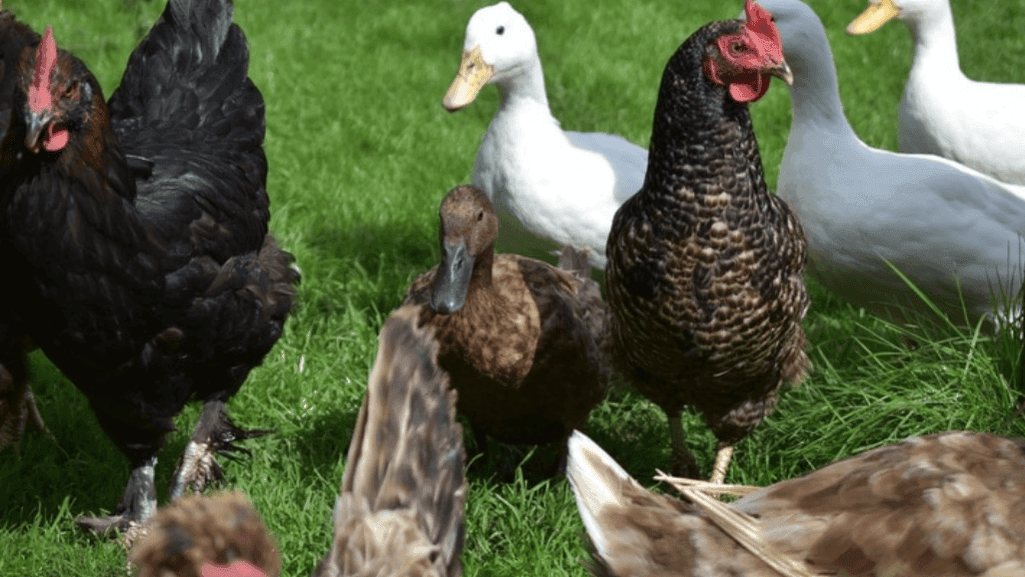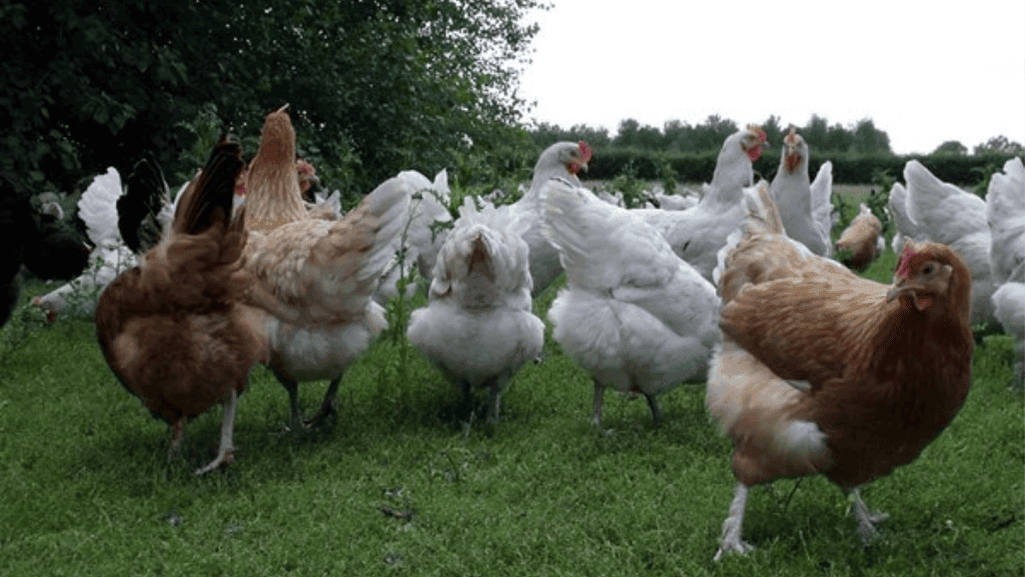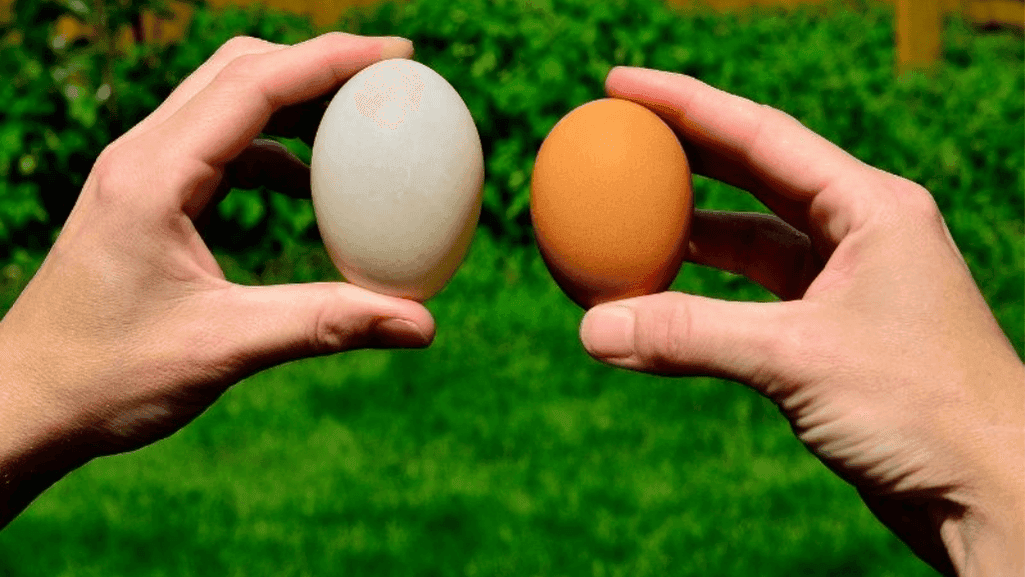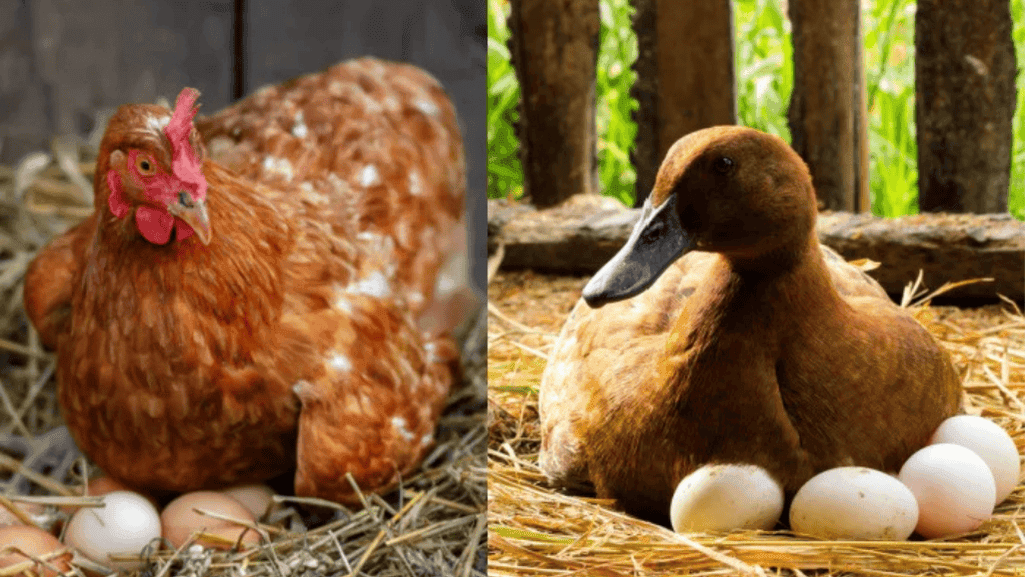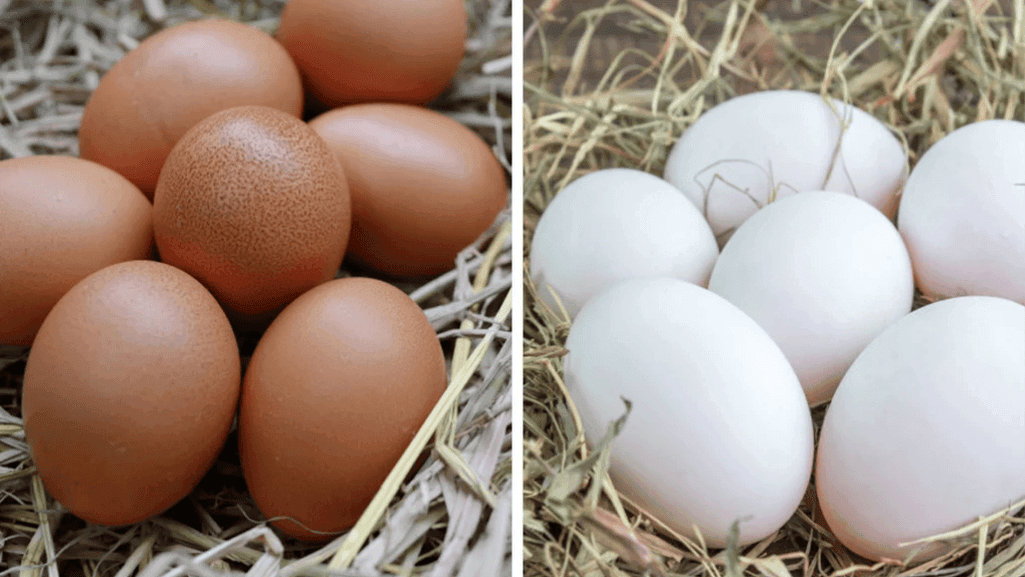The world of poultry egg production fascinates many. When comparing duck vs chicken egg production, several factors come into play. These include breed, laying frequency, and how they affect the environment.
Some chicken breeds, like Leghorns and Isa Browns, lay a lot of eggs. Ducks, such as Khaki Campbells and Indian Runners, also lay a lot. Both can produce up to 300 eggs a year. Ducks start laying eggs a bit later, at 6-7 months, but keep laying for a long time.
Ducks are better at laying eggs in different weather and light conditions. This makes them great for laying eggs all year round.
Now, let’s dive deeper into these birds and their egg-laying abilities. We’ll see if duck egg vs chicken egg is the better choice for egg abundance.
Key Takeaways
- Both select duck and chicken breeds can reach an annual egg production of up to 300 eggs.
- Ducks commence egg laying later but sustain longer productive lifespans than chickens.
- Duck eggs are recognized for their larger size and richer nutritional content including fats and proteins.
- Ducks excel in pest control and are less harmful to pasture land compared to chickens.
- Farmers need to consider the environmental factors such as climate and habitat when choosing between ducks and chickens.
- Ducks add a waterproof layer to their eggs, which protects them near water but necessitates refrigeration once removed.
- The demand for duck eggs in culinary circles is rising due to their creamy texture and fluffier results in baking.
Introduction to Egg Production in Poultry
The process of poultry egg laying is a key part of agriculture. It involves chickens and ducks mainly. Each bird has its own traits that affect how many eggs they lay. The right food, care, and management can boost their egg production.
Knowing the basics of domestic fowl egg production is key. It’s important for both backyard farms and big commercial farms. Choosing the right breed is the first step. This choice greatly affects how well they lay eggs.
Things like the right weight, climate, and care are crucial. Proper lighting and vaccinations help too. Taking good care of them from young to old is vital for quality eggs.
Ducks and chickens have different needs. Ducks need a special environment, unlike chickens. They start laying eggs at 6-7 months. It’s important to collect their eggs early to keep them fresh.
Poultry egg laying is more than just caring for the birds. It also follows strict rules for feed, egg handling, and storage. These rules keep the birds healthy and the eggs safe for people to eat.
To learn more about egg production in ducks and chickens, we’ll look at their differences. This will help you choose and care for your poultry for the best egg production.
Understanding the Egg Laying Capabilities of Ducks
Ducks are special in the world of poultry. They are known for their cute waddles and great egg-laying skills. Unlike chickens, ducks can lay eggs all year round, showing their strength and flexibility.
Differences in Duck Breeds and Their Egg Output
Different duck breeds have their own egg-laying abilities. For example, the Khaki Campbell and Golden 300 Hybrid Layer can lay up to 290-300 eggs a year. This is more than many chicken breeds can do. Breeds like the Welsh Harlequin and Silver Appleyard also lay a lot of eggs, adding to the duck egg supply.
Year-Round Production: How Ducks Have an Advantage
Ducks keep laying eggs even when it’s cold outside. They do this better than chickens, who often stop laying in winter. This makes ducks great for people who want eggs all year. Plus, ducks can lay eggs for more years than chickens, which is good for farming.
Ducks are also easy to care for. They don’t need as much heat when they’re young and can quickly switch to regular food. This makes them a good choice for both experienced farmers and beginners. Learn more about the differences in poultry farming.
Understanding how ducks lay eggs all year can help improve farming. It encourages farmers to use more sustainable and effective methods.
Assessing Chicken Breeds and Their Laying Patterns
Chickens are known for their different egg-laying abilities, thanks to their breed. Breeds like the Australorp and Golden Comet can lay up to 300 eggs a year. This is impressive.
Several things affect how many eggs a chicken lays. For example, the age at first laying is between four and six months. Smaller chickens start laying eggs sooner than bigger ones.
Unlike ducks, chickens lay eggs all year round. This is because humans control their environment using photoperiodism. This means changing the light to keep them laying eggs even when it’s dark.
Chickens lay a lot of eggs at first but then slow down. This is different from ducks, which lay eggs for a longer time. Knowing this helps when choosing a breed for egg production.
- Chickens lay a clutch of 10-15 eggs before taking a break to incubate them, usually lasting about 21 days.
- Advancements in farming include using artificial lighting to simulate up to 14 hours of daylight, ensuring continued egg production during reduced natural light in fall and winter.
- Egg shell color, an intriguing aspect of chicken eggs, is determined by the hen’s breed, with white-feathered hens commonly laying white eggs and red-feathered hens producing brown eggs.
- Molting can be induced in hens through decreased light exposure, rejuvenating their reproductive systems for enhanced egg production and extending their productive lifespan.
Knowing about chicken breeds and their egg-laying habits helps in many ways. It’s good for making more eggs or for saving money in farming. This knowledge is useful for both small farms and big ones.
Comparing Duck and Chicken Egg Sizes and Nutritional Content
Choosing between duck and chicken eggs depends on size and nutrition. These factors impact how we use eggs in cooking and their health benefits.
Size Matters: Why Duck Eggs Are Larger
Duck eggs are bigger than chicken eggs, making them great for baking. They add fluffiness and richness to dishes. A duck egg weighs 70 to 90 grams, while a chicken egg weighs 50 to 60 grams.
Their shells are also thicker, making duck eggs more durable and lasting longer.
Health Benefits Comparison: What’s In Your Egg?
The nutritional content of duck eggs is richer in omega-3 fatty acids, protein, and vitamins. They have more vitamin B12 and iron than chicken eggs.
Duck eggs have more cholesterol, with 276% of the Daily Value. Chicken eggs have 92% DV. This is important for those watching their cholesterol.
Duck eggs are great for special diets and baked goods. Their richer texture and flavor are perfect for these uses.
Duck and chicken eggs meet different needs in cooking and diet. Knowing their differences helps us make better choices for our health and cooking.
How Environment Affects Egg Production in Ducks vs Chickens
The environment has a big impact on how ducks and chickens lay eggs. Ducks are known for being tough and can handle different weather well. They keep laying eggs even when it’s hot or cold.
On the other hand, chickens are more sensitive to their surroundings. They do best in certain temperatures. If it’s too hot or too cold, their egg production can suffer.
Chickens need the right weather to lay eggs well. Farmers choose breeds based on how well they handle cold or heat. This choice depends on where they live.
Ducks, however, can lay eggs in many different weather conditions. They are very adaptable, thanks to their natural abilities.
Ducks’ ability to handle stress means they lay eggs more consistently. This is great for farmers, especially in places with unpredictable weather. It makes farming easier.
Ducks also stay healthier than chickens, which means they lay eggs more reliably. This is important for farmers who want to be efficient and sustainable.
In short, chickens need a controlled environment to lay eggs well, but ducks are more flexible. Ducks are better for farmers in different climates because they are hardy. This makes ducks a reliable choice for egg production in various weather conditions.
do ducks lay more eggs than chickens
Many people wonder which bird lays more eggs each year. Ducks and chickens are both popular choices for backyard farms. Looking at their egg-laying stats and lifespan helps us understand their roles better.
Analyzing Annual Egg Output Data
Some numbers really stand out when we compare ducks and chickens. For example, both Leghorns and Khaki Campbells can lay up to 300 eggs a year. But, ducks tend to lay more eggs over their lifetime because they live longer.
Ducks also keep laying eggs all year round, even when it’s dark. This is because they don’t get as affected by daylight changes as chickens do. So, ducks are better at producing eggs all year.
Factoring in Seasonality and Lifespan
Chickens lay fewer eggs in the winter because of less daylight. But ducks keep laying eggs no matter the season. They also forage well, which means they don’t need as much food.
Plus, ducks live longer than chickens. This means they keep laying eggs for more years. So, ducks are a great choice for those who want more eggs from their birds.
| Characteristic | Ducks | Chickens |
|---|---|---|
| Starting Age for Laying | 6-7 months | 4-5 months |
| Average Annual Egg Count | 150-300 | 250-300 |
| Impact of Daylight on Production | Low | High |
| Lifespan Productivity | Longer | Shorter |
| Egg Size (ounces) | 2-2.5 | Varies less than 2 |
To learn more about sustainable poultry practices, visit Backyard Chickens vs Ducks.
Sustainable Livestock Management: Ducks vs Chickens
In sustainable agriculture, managing ducks and chickens is key. It’s about animal welfare and productivity. Knowing their needs helps in farming.
Ducks are tough and good at finding food. They work well in many climates and fight pests. This means less chemical use.
They also handle wet conditions better than chickens. This makes them great for different farms.
For optimal duck welfare and output, access to water not only for drinking but also for bathing is crucial, supporting their natural behavior and maintaining healthy plumage.
Chickens are better at laying eggs and do well in dry places. They need special food and a controlled space. This makes them good for certain farms.
- Ducks lay eggs all year, making them reliable.
- Chickens need special care and a certain environment to stay healthy and lay eggs.
Ducks need room and water, while chickens prefer dry, warm places. This shows the need for different housing for each.
| Aspect | Ducks | Chickens |
|---|---|---|
| Egg Production | Up to 300/year, more consistent year-round | Up to 300/year, less consistent, seasonally affected |
| Lifespan Productivity | Longer productive lifespan | Shorter compared to ducks |
| Space Requirements | More space, needs bathing water | Less space, requires dry conditions |
Managing ducks and chickens sustainably is good for them and the planet. Ducks help the soil and fight pests. Chickens are good for small spaces.
Learn more about sustainable poultry management at Ducks New World. It offers practical advice from experts and farmers.
Housing Needs for Optimal Egg Laying
Poultry housing is key to the health and egg-laying of birds. Different birds need different homes. Ducks and chickens, for example, have unique needs because of their habits and size.
From Coops to Ponds: Customizing Homes for Poultry
Chickens like Leghorns or Isa Browns need coops with nesting boxes and roosting areas. These are important for their night habits and egg laying. On the other hand, ducks sleep on the ground and don’t need much vertical space. They do need easy water access for health and cleanliness.
Maintenance and Cleanliness Considerations
Keeping the place clean is vital to prevent diseases and keep the environment healthy. Ducks are messier and need more cleaning, especially because their droppings are wetter than chickens’. They also like to play in mud, making cleaning harder. Good water management and regular upkeep are key to a healthy living space.
| Feature | Ducks | Chickens |
|---|---|---|
| Start of Egg Laying (age in months) | 6-7 | 4-5 |
| Productive Lifespan | Longer | Shorter |
| Year-Round Production | More consistent | Less consistent |
| Sensitivity to Light | Low | High |
| Need for Fencing | Lower | Higher |
| Space Requirement | More | Less |
| Water Needs | Higher | Lower |
Understanding and meeting the housing needs of different birds is crucial. It affects their health and how well they lay eggs. By tailoring housing to each species, breeders can improve their egg-laying efficiency. For more information, visit the Ducks New World website.
Feeding Ducks and Chickens for Maximum Egg Production
The way we feed poultry greatly affects their egg production. Ducks and chickens share some dietary needs but also have their own special requirements. Here’s a detailed guide on feeding them for the best results.
- Nutritional Requirements: Chickens need a carefully planned diet to lay lots of eggs. They start laying eggs at 4-5 months, with some breeds laying up to 300 eggs a year. Ducks lay eggs for longer, starting at 6-7 months, and some breeds can lay 300-350 eggs annually. Their natural diet helps them stay healthy and keep laying eggs, even in different environments.
- Feeding Strategy: Ducks are great at finding food on their own, eating greens, bugs, and small animals. This varied diet helps them not rely too much on extra food. Chickens, however, need food that’s high in energy and has the right mix of proteins, vitamins, and minerals to stay healthy and keep laying eggs.
- Specific Feed Types: It’s important not to give ducks medicated feed because it can be harmful to them. Chickens, on the other hand, can benefit from medicated feed to fight off diseases.
| Species | Average Annual Egg Count | Average Feed Consumption | Egg Laying Time |
|---|---|---|---|
| Chickens | 250-300 eggs | Varies by breed | Throughout the day |
| Ducks | 300-350 eggs | 120 grams/day | Mostly by 9 AM |
Both ducks and chickens do well when their dietary needs are met. While ducks can handle different diets because they forage, chickens need a consistent diet to avoid boredom and bullying. Properly managing their diets leads to more eggs and healthier, happier birds.
Conclusion
Exploring poultry egg production shows us the special traits of duck and chicken farming. Ducks are more efficient at laying eggs, with top layers producing about 300 eggs a year. Their eggs are also 20-35% bigger than chicken eggs.
Ducks have a lower fertility rate but live longer after hatching. They also fight off diseases better than chickens.
Knowing these differences is key for poultry farmers. Ducks are great for many reasons. They can handle different weather and find food on their own, saving up to 25% of their diet.
They also help control pests, making their eggs more valuable. This is especially true in special markets.
Choosing between ducks and chickens is more than just numbers. It’s about your lifestyle, how much space you have, and what you prefer. For more info, check out Ducks New World. They offer lots of knowledge and even newsletters to help you decide.
Whether you’re starting a homestead, a small farm, or a big operation, picking the right birds is crucial. It’s all about making your farm successful and sustainable.


